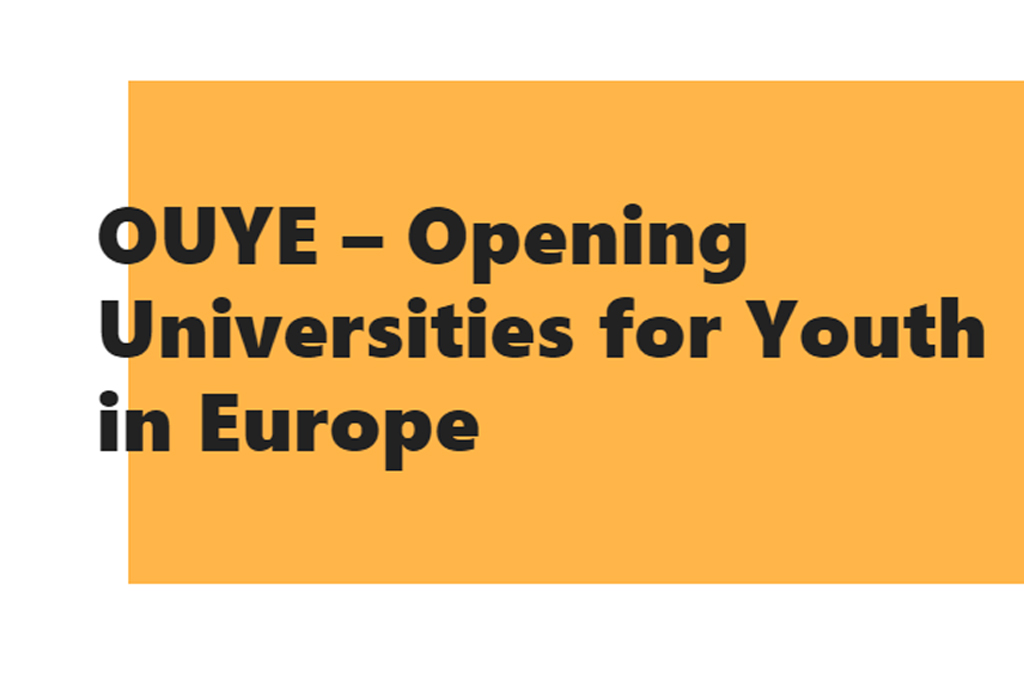
OUYE - Opening Universities for Youth in Europe…
This innovative project aims to build a common European framework to expand access to University for young people who are typically excluded (precarious, non-qualified, migrants, dropouts, etc.) through 4 objectives:
- To open access to university for young people who are typically excluded from it by recognising and valuing knowledge and skills and thus promote and consolidate their place at university ;
- To develop non-formal and informal education at university by co-creating training and apprenticeships with researchers, youth workers and young people using participatory action research;
- Strengthen young people’s knowledge, experience, and expertise in the field of human and social sciences;
- Examine the role of non-formal and informal education in European universities to support and build sustainable societies.
The partnership is led by a group of 20 people, researchers, sociologists, teachers, trainers, development project managers, directors of associations, who mutually strengthen their links and their capacity for action, particularly through the construction of learning activities. Academics from Yeditepe University Faculty of Arts and Sciences are a part of this leading group. 200 participants will benefit from the experiments proposed in the various intellectual productions. 1500 final beneficiaries are aimed to be reached at the end of the partnership.
Over the 3 years (2021-2023), OUYE will produce a European toolkit composed of artistic productions illustrating local training based on a foundation of common values and methods, created during this project (O1). The toolkit will also be composed of training modules and materials including co-evaluations and feedback (O2). OUYE will also produce a comparative analysis of local case studies from the joint seminar cycles (O3). All of this will be made available on an online platform from 2023 and before that, tested in each of the partnership countries with a variety of audiences. Source